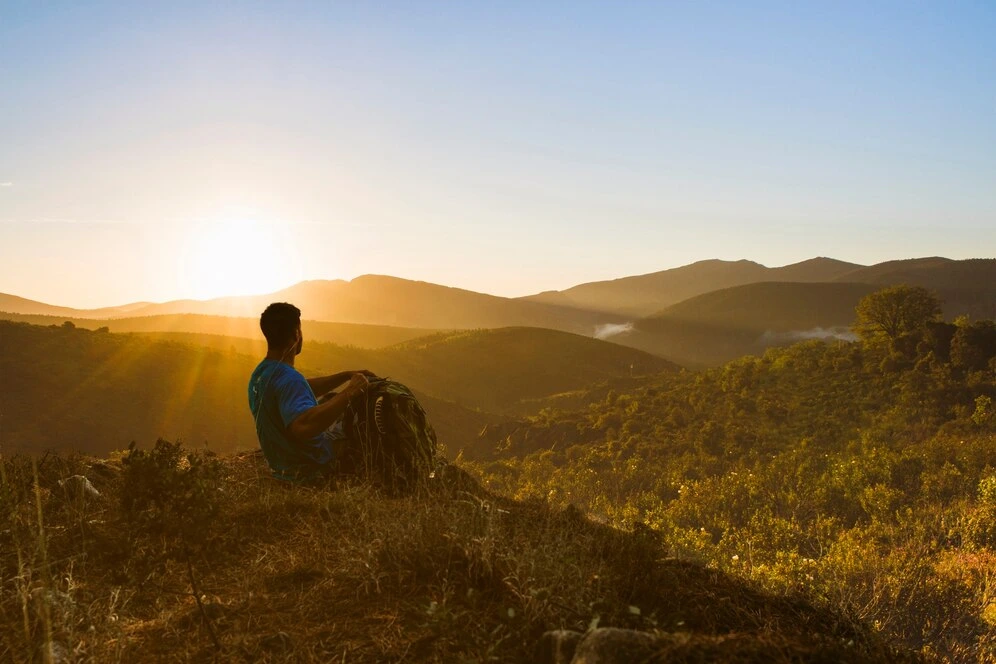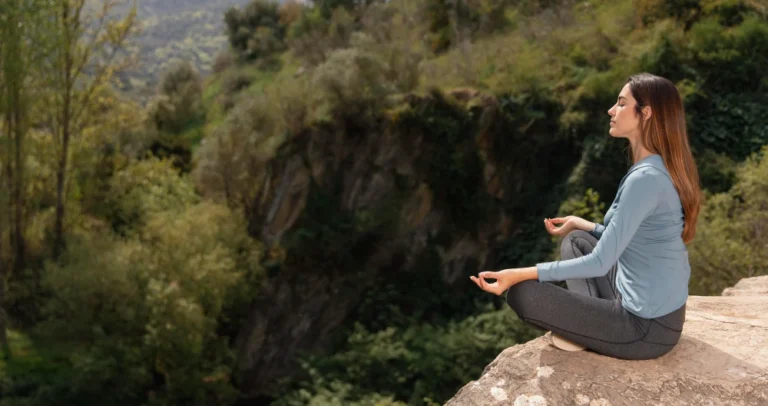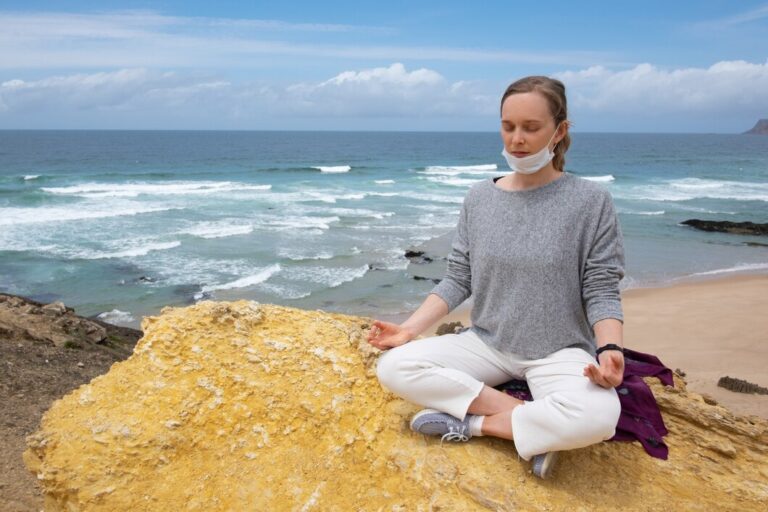
Imagine standing before the majestic sweep of the Grand Canyon. The sun paints the ancient rock in hues of orange and purple. Instead of breathing it in, feeling the vastness settle in your bones, your thumbs are flying across a tiny screen. You’re crafting the perfect caption, selecting the right filter, chasing the fleeting validation of likes while the real, unrepeatable moment dissolves around you, unnoticed. Or perhaps you’re navigating a bustling Moroccan souk, head down, following a blue dot on a screen, missing the intricate dance of daily life, the scent of spices, the calls of vendors, the potential conversations waiting just beyond your digital tunnel vision.
This scenario is increasingly common challenges. We travel to offline escape to experience, to connect – yet we often bring the very digital tethers we crave freedom from. Social media, designed for connection, can paradoxically isolate us from our immediate surroundings and the potential for genuine human interaction when we’re exploring new places.
This post isn’t about demonizing technology, but about exploring a different way to travel – one where effective communication in the age of social media paradoxically means putting the social media down. You’ll learn how disconnecting enhances travel, discover practical tips for navigating and communicating without constant digital aids, and find the surprising richness that awaits when you choose presence over push notifications.
The Siren Song: Why We Stay Plugged In While Away

Why is it so hard to disconnect, even when we’re ostensibly trying to get away from it all? The reasons are deeply ingrained in our modern habits and psychology. There’s the fear of missing out (FOMO), not just on what’s happening back home, but on documenting and sharing our own experiences in real-time. We feel pressure to perform our vacation, curating a highlight reel for an online audience rather than simply living the experience for ourselves.
This constant urge to capture and broadcast can fragment our attention, pulling us out of the present moment. Think of it like trying to taste a gourmet meal while simultaneously describing each bite on a phone call – you experience neither fully.
Furthermore, technology offers undeniable convenience. Instant navigation, translation apps, quick answers to any question – these tools reduce uncertainty, a state many find uncomfortable. We’ve become accustomed to outsourcing cognitive tasks like map-reading or remembering details to our devices.
There’s also the social expectation; friends and family often expect instant updates and photos. The dopamine hits from likes and comments create a feedback loop that’s genuinely addictive, making the prospect of going offline feel like severing a lifeline.
Is the comfort of constant connection worth the cost of diluted experiences? This reliance, while practical on the surface, can subtly erode our ability to be resourceful, observant, and truly engage with the world directly. It fosters a passive consumption of place, rather than an active, mindful participation.
Key Downsides of Over-Connection While Traveling:
- Fragmented Attention: Missing the nuances of the present moment.
- Superficial Experiences: Focusing on documentation over immersion.
- Reduced Resourcefulness: Over-reliance on apps diminishes problem-solving skills.
- Diminished Human Interaction: Prioritizing screen time over face-to-face connection.
- Increased Stress: The pressure to constantly perform and share can be exhausting.
The Liberation of Looking Up: Benefits of Unplugging

Choosing to consciously disconnect, even partially, during travel isn’t just about deprivation; it’s about liberation. Imagine the mental space that opens up when you’re not constantly reacting to notifications or planning your next post. This is where the magic of mindful travel truly begins.
Your senses, no longer dulled by screen glow, awaken. You start to notice things: the specific shade of blue in the Aegean Sea, the complex rhythm of a foreign language spoken around you, the texture of cobblestones underfoot, the way sunlight filters through jungle canopy. These details, often lost in the digital rush, form the rich tapestry of memory.
Unplugging fosters deeper presence. Without the constant pull of the digital world, you are fully there, wherever “there” is. This presence enhances every aspect of the travel experience. Conversations become more meaningful because you’re giving your full attention.
Meals become more flavorful because you’re savoring each bite. Landscapes become more breathtaking because you’re truly absorbing their scale and beauty. This state of mindful awareness reduces the mental clutter and anxiety that often accompany our hyper-connected lives. It allows for genuine rest and rejuvenation, not just a change of scenery.
Remember the feeling of being completely lost in a good book or a captivating conversation? Tech-free travel allows that immersive focus to extend to your entire surroundings. It’s the difference between watching a travel documentary and actually being the adventurer in the story. What unexpected beauty might you notice if your gaze wasn’t fixed on a screen?
Tangible Gains from a Screen-Free Vacation:
- Heightened Sensory Awareness: Noticing more details, flavors, sounds, textures.
- Increased Presence & Mindfulness: Being fully engaged in the current moment.
- Improved Memory Formation: Creating richer, more lasting memories.
- Reduced Stress & Anxiety: Escaping the pressure of constant connectivity.
- Enhanced Creativity & Problem-Solving: Relying on your own observation and ingenuity.
- Deeper Connections: Fostering more meaningful interactions with travel companions and locals.
- Genuine Relaxation: Allowing the mind to truly rest and wander.
Effective Communication in the Age of Social Media: The Unplugged Traveler’s Toolkit

Here’s the core idea: True effective communication in the age of social media, especially when traveling, flourishes offline. When we remove the digital filters and intermediaries, we engage more directly, authentically, and meaningfully with the people around us – travel companions, locals, even ourselves. Being unplugged sharpens the very skills that underpin genuine connection. It forces us back to the fundamentals of human interaction, skills often neglected in our text-based, emoji-laden digital exchanges.
Think about it: How much communication relies on nuances lost online? Tone of voice, subtle facial expressions, body language, comfortable silences – these are vital components of understanding and connection. When your phone isn’t buzzing in your pocket or demanding your visual attention, you’re free to tune into these richer channels.
This section reframes essential communication skills through the lens of tech-free travel:
- Active Listening (Beyond Just Hearing): When you’re not mentally drafting a tweet or checking notifications, you can truly listen. Hear not just the words, but the underlying emotion, the pauses, the enthusiasm. Ask follow-up questions that show you’re engaged, not just waiting for your turn to speak or snap a photo. This is crucial whether chatting with a fellow traveler about their journey or asking a local vendor about their craft.
- Observing Body Language (The Unspoken Story): Without a screen demanding your gaze, you notice the universal language of gestures, posture, and expressions. Is the person you’re talking to relaxed? Tense? Open? This adds layers of understanding, especially when navigating language barriers. You’ll learn to read situations and people more intuitively.
- Asking Open-Ended Questions (Inviting Deeper Shares): Move beyond simple transactional questions (“Where is the station?”). Ask questions that invite stories and perspectives (“What’s your favorite local dish here?” “What’s a place nearby that tourists often miss?”). Being present gives you the mental space to formulate thoughtful inquiries.
- Sharing Authentically (Vulnerability Connects): When you’re not curating an online persona, you might feel more comfortable sharing your genuine thoughts, feelings, and even mishaps. This vulnerability fosters trust and rapport far more effectively than a perfectly filtered photo ever could. Sharing a funny travel mistake often leads to more connection than boasting about a flawless itinerary.
- Embracing Silence (Comfort in Presence): Not every moment needs to be filled with chatter or documented. Simply sitting in comfortable silence with a companion, watching a sunset, or observing a street scene together builds a unique, unspoken connection. Being offline makes these shared, quiet moments possible and profound.
- Showing Genuine Curiosity (Fueling Interaction): Being unplugged naturally sparks curiosity about your surroundings. Use this! Ask locals about their lives, traditions, or the history of a place. This genuine interest is often met with warmth and openness, leading to unexpected insights and memorable encounters far richer than any guidebook entry.
- Practicing Empathy (Bridging Differences): Travel exposes us to different ways of life. Being present allows you to observe and reflect, fostering empathy. Try to understand situations from another’s perspective, whether it’s a struggling street vendor or a fellow traveler facing difficulties. This deepens your understanding of the world and your connection to humanity.
- Being Fully Present (The Ultimate Gift): This underpins all other tips. Giving someone your undivided attention is rare and valuable. Put the phone away during conversations, meals, and shared experiences. Make eye contact. Show them, through your focus, that they are more important than anything happening on your screen.
- Navigating Disagreements Respectfully (Travel Teaches Patience): Travel, especially tech-free travel, can present challenges. Disagreements might arise with companions over plans or directions. Being present and mindful helps you respond rather than react, discussing issues calmly and respectfully without the added stress of digital distractions.
- Expressing Gratitude (Acknowledging the Moment): Take moments to consciously appreciate the experiences and interactions you’re having. Express gratitude to your travel companions, to helpful locals, even silently to the place itself. This mindful practice enhances your own joy and strengthens bonds.
Analog Adventures: Navigating and Capturing Moments Without Tech

One of the biggest hurdles to a digital detox during travel is the perceived reliance on technology for core functions like navigation, photography, and information gathering. But humanity explored the globe long before smartphones! Embracing analog alternatives isn’t just about nostalgia; it’s about engaging different parts of your brain and interacting with your environment more directly.
Instead of Google Maps, unfold a physical paper map. There’s a unique satisfaction in tracing your route with a finger, orienting yourself using landmarks, and understanding the spatial relationships between places in a way a glowing screen rarely conveys. It encourages observation – you have to look up and around to match the map to reality. Getting slightly lost can lead to wonderful discoveries. And asking for directions? It’s a fantastic icebreaker and a chance for genuine local interaction you’d miss by following a digital voice.
For capturing memories, swap the smartphone camera for a journal and pen or even a disposable or film camera. Writing about your experiences forces you to process them more deeply, engaging your thoughts and feelings. Sketching a scene, even poorly, makes you observe details intensely.
Using a film camera introduces an element of anticipation and mindfulness – with limited shots, you become more deliberate about what you choose to capture, focusing on meaningful moments rather than snapping hundreds of indifferent digital files. The delayed gratification of waiting for film to be developed can be a joy in itself.
Analog Alternatives for Common Tech Dependencies:
- Navigation: Physical maps, compass, asking locals for directions, paying attention to landmarks and street signs.
- Photography: Film cameras, disposable cameras, sketching, journaling (writing detailed descriptions).
- Information: Guidebooks (physical copies), asking locals/hotel concierges, tourist information centers, simply observing and inferring.
- Translation: Phrasebooks (small, pocket-sized), learning basic key phrases beforehand, using gestures and patience.
- Entertainment: Books, travel-sized board games or card decks, conversation, people-watching, listening to local music.
- Communication (Staying in Touch): Pre-arranged check-in times via landline or occasional Wi-Fi spots (if not going fully offline), sending postcards (a delightful retro experience!).
How might relying on a map change how you see a city compared to following a blue dot?
Cultivating Connection: Tech-Free Activities for Deeper Bonds

Traveling tech-free, especially with companions, opens up space for activities that naturally foster communication and connection. When screens aren’t competing for attention, you turn towards each other and the shared environment. These shared, analog experiences build memories and strengthen relationships in ways passive screen time rarely does. It’s about shifting from shared consumption (watching a movie together) to shared creation and interaction.
Think about simple, timeless activities. Playing a deck of cards or a travel-sized board game in the evening encourages laughter, lighthearted competition, and conversation. Sharing stories – perhaps reading aloud from a book, recounting past travel adventures, or simply talking about your day’s experiences – creates intimacy. If you’re staying somewhere with kitchen facilities, cooking a meal together, shopping at a local market for ingredients, and collaborating on the preparation is a wonderfully grounding and connective experience.
Engaging with the natural world together is profoundly bonding. Go for a hike without checking GPS constantly. Stargaze in a dark sky location, sharing the sense of wonder. Have a picnic focusing on the food, the surroundings, and the company.
Keep a collaborative travel journal, where each person contributes entries, drawings, or mementos. Even simple acts like people-watching together from a cafe terrace, sharing observations and speculations, can be a rich source of connection and entertainment, sharpening your observational skills and offering insights into local life.
Tech-Free Activity Guide for Connection:
- Game Night: Pack cards, dice, or a compact board game.
- Story Time: Read aloud, share personal stories, or invent tales inspired by your location.
- Collaborative Cooking: Shop locally and prepare a meal together.
- Nature Immersion: Hiking, stargazing, swimming, birdwatching – focusing on shared sensory experience.
- Creative Journaling: A shared logbook for notes, sketches, and collected items (tickets, leaves).
- People-Watching: Mindfully observe public spaces and discuss observations.
- Learn a Local Craft: Take a short, hands-on workshop together (e.g., pottery, cooking).
- Music Sharing: If someone plays an instrument, have a singalong. Or simply listen attentively to local music.
- Letter Writing/Postcards: Spend an evening writing thoughtful messages to send home.
Common Concerns & Solutions for Tech-Free Travel

The idea of traveling without the safety net of constant connectivity can feel daunting. Many legitimate concerns arise. Addressing these proactively can ease anxiety and make the prospect of unplugging feel more achievable.
- Concern: What if I get lost?
- Solution: Embrace it as part of the adventure! Carry physical maps and a compass (and learn basic usage before you go). Plan routes beforehand, write down key addresses/directions. Ask locals – it’s often faster and leads to interesting interactions. Allow buffer time in your schedule for potential detours. Remember, getting slightly lost often leads to the best discoveries.
- Concern: What about emergencies? How will family contact me, or how will I call for help?
- Solution: Plan ahead. Inform key contacts of your itinerary and limited connectivity. Provide hotel landline numbers or establish pre-arranged check-in times/locations using occasional Wi-Fi if needed (a scheduled check-in is different from constant availability). For safety, research local emergency numbers beforehand and keep them written down. Consider carrying a simple, non-smart emergency phone or a satellite messenger only for true emergencies if venturing into very remote areas.
- Concern: Won’t I miss out on capturing moments without my smartphone camera?
- Solution: Reframe “capturing” as “experiencing.” Focus on absorbing the moment with all your senses. Use analog alternatives like journaling, sketching, or a film camera for more intentional memory-making. Trust that the most impactful moments will stay with you, vividly etched in your memory, perhaps even better because you were fully present.
- Concern: I’ll be bored without my phone for entertainment.
- Solution: Rediscover analog entertainment! Pack books, cards, a journal, or small games. Engage in conversation. Practice observation. Learn basic phrases of the local language. Embrace the quiet moments for reflection. Boredom can be a gateway to creativity and noticing things you’d otherwise miss.
- Concern: How will I look up information quickly (restaurant reviews, opening times)?
- Solution: Use physical guidebooks, ask hotel staff or concierges, talk to locals for recommendations (often the best source!). Check opening times in advance when you do have brief connectivity or ask directly. Accept that you might not always have the “optimal” choice according to online reviews, and enjoy the serendipity of stumbling upon a hidden gem.
Before You Go: Your Tech-Free Travel Prep Checklist

A little preparation can make your transition into a tech-free or tech-reduced trip smoother and more enjoyable.
- Inform Key Contacts: Let friends and family know about your limited connectivity plans. Provide emergency contact info (hotel numbers) and maybe set up one or two specific check-in times if necessary.
- Download Offline Resources (Pre-Trip): If using maps or guides on a device before fully disconnecting, download everything needed for offline use (Google Maps offline areas, PDF guidebooks).
- Pack Analog Tools: Bring physical maps, a compass (optional, but fun!), guidebooks, phrasebooks, notebooks, pens, books, cards, or other non-digital entertainment. Consider a disposable or film camera.
- Set Digital Boundaries: Decide your rules. Will you be completely offline? Check messages once a day? Only use Wi-Fi for specific tasks? Define this beforehand. Turn off non-essential notifications. Consider leaving laptops/tablets at home.
- Charge & Power Down: Fully charge essential devices you might need minimally (e.g., for emergency calls or offline maps), then consider turning them off and packing them away, making them inconvenient to access.
- Mental Preparation: Remind yourself why you’re doing this. Anticipate potential urges to check your phone and have strategies ready (take deep breaths, focus on your surroundings, engage in an analog activity). Embrace the potential for spontaneity and the unexpected.
- Learn Basic Phrases: Knowing a few greetings and essential questions (“Where is…?”, “Thank you,” “How much?”) in the local language goes a long way when you can’t rely on a translation app.
- Write Down Key Info: Keep a small notebook with essential addresses, phone numbers (emergency, accommodation), reservation details, and basic directions.
Conclusion: The Underrated Richness of Real-World Connection

In an era saturated with digital noise, choosing to travel tech-free isn’t about rejecting modernity; it’s about intentionally reclaiming something profoundly human: presence. It’s about trading the fleeting dopamine of online validation for the lasting richness of sensory immersion and genuine connection.
By stepping away from the screen, you step more fully into the world, allowing your travels to transform you in deeper ways. You’ll find that effective communication in the age of social media ironically blossoms when you prioritize face-to-face interaction over feeds and followers.
The most memorable travel moments are rarely the perfectly filtered photos, but the unexpected conversations, the kindness of strangers, the feeling of navigating by wit and map, the shared laughter with a companion over a minor mishap, the quiet awe before a natural wonder experienced without distraction. These are the moments that become cherished stories, not just fleeting posts. They require us to be vulnerable, observant, and truly present.
Your challenge: On your next trip, big or small, dare to disconnect, even for a day, or just an afternoon. Leave the phone in your room. Navigate with a paper map. Strike up a conversation without Googling the person first. See what unfolds when you allow the world to reach you directly, unfiltered. You might just discover that the greatest connection you find is the one with the world around you, and with yourself.





